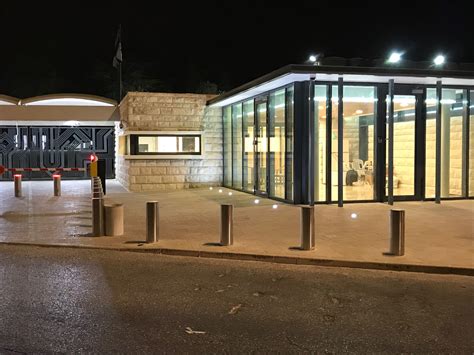
It is extremely frustrating for voters from the nationalist camp to watch the political wrangling over the upcoming elections to Israel’s presidency. The president of Israel is elected by members of Knesset and the next president will be elected on June 2. Presently, representatives of the nationalist camp have 65 representatives in the 120-member Knesset. Yet despite their commanding majority, the camp presented no candidate of its own to serve as Israel’s next head of state.
The leading contender for the post, Jewish Agency Chairman and former Labor Party leader Yitzhak Herzog is a man of the Left. The second contender, Israel Prize winner Miriam Peretz, a twice bereaved mother of IDF combat officers is much admired. But politically, she is a black box.
The nationalist camp’s failure to produce a presidential candidate isn’t an innocent failure. It is a symptom of the political and bureaucratic pathologies that have trapped Israel in political limbo for two years.
Israel’s president has three main powers. First, he has the power to grant pardons. This power has become vitally important in recent years as the police and the state prosecution have undergone a process of radical politicization. While the president lacks the power to order the police to open investigations against Arab rioters and pogromists in Lod and Acre, he has the power to pardon the Jews that shot pogromists in self-defense only to find themselves arrested and indicted for manslaughter.
The second presidential power is his post-Knesset election authority to decide which political leader will receive the mandate to form a government. While this power was long viewed as ceremonial, in recent years, presidents Shimon Peres and Reuven Rivlin have leveraged this authority to transform themselves into powerful political actors. Given this new reality, it’s clear the president’s political identity will greatly influence the identity of the prime minister and the political configuration of his government.
The president’s third power is the power of the bully pulpit. As the head of state, the president has an influential soapbox both in relation to domestic politics and in international affairs. While this has always been true, given the way that Rivlin exploited his microphone to harm the nationalist camp accusing its members of bigotry to silence them, it is clear that the nationalist camp, whose members are the majority of Israel’s citizens, has an interest in having one of its representatives serving as president.
So how did it come about that despite its Knesset majority, the nationalist camp failed to put forward a candidate of its own? Two people are responsible for this lamentable state of affairs.
Responsibility for the situation falls first and foremost to Attorney General Avichai Mendelblit.
As has become apparent already at this early stage of Prime Minister Benjamin Netanyahu’s criminal trial, the actions for which Mandelblit indicted him, are entirely legal and indeed, routine. Mandelblit defined Netanyahu’s efforts to receive positive coverage from a marginal news website as criminal acts for the sole purpose of indicting Netanyahu. His goal was not necessarily to send Netanyahu to prison. It was to neutralize him and seize his executive powers.
Simply by indicting Netanyahu, Mendelblit prevented him from exerting any influence over the identity of the next president and senior Justice Ministry officials. After all, the next state prosecutor will be responsible for prosecuting Netanyahu, and the next president may be called on to decide whether or not to pardon him.
MK Gideon Sa’ar is the second reason the nationalist camp didn’t put forward a candidate for president. The disgruntled former Likud minister formed his ostensibly right-wing New Hope party for the sole purpose of unseating Netanyahu. Sa’ar’s unyielding, all-encompassing hatred of Netanyahu is the only thing that informs his actions. Sa’ar’s 6-seat faction is the reason that Netanyahu has been unable to translate the nationalist camp’s 65-seat majority into a governing coalition. And his 6-seat faction is the reason that the nationalist camp lacks a parliamentary majority to elect one of its members to serve as president.
Some have claimed the nationalist camp failed to present a candidate because it doesn’t have anyone suitable for the job. This is nonsense. The nationalist camp has plenty of members who would bring great credit to the country from the President’s House. But why would a suitable candidate step forward knowing that his side lacks the votes to elect him?



